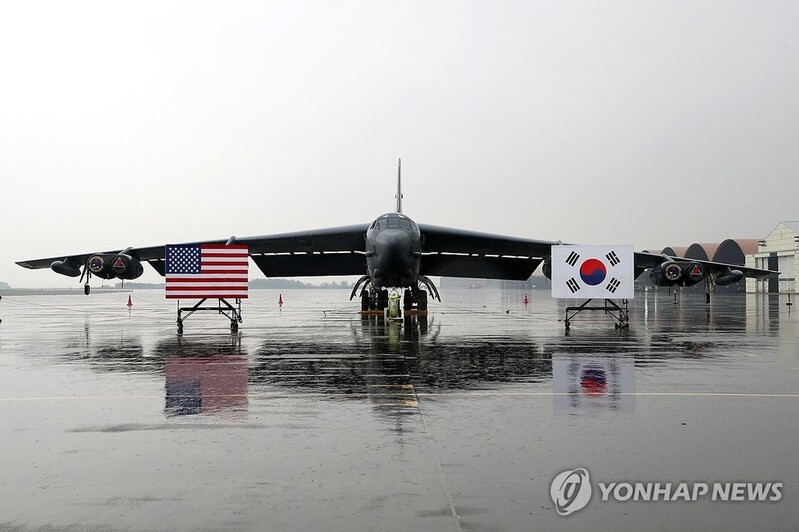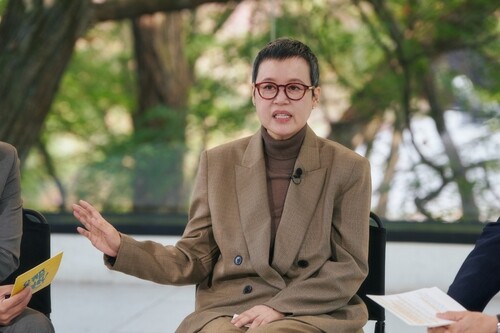 |
| ▲ The United States Forces Korea unveils a B-52H strategic bomber's landing at the South Korean Air Force base at Cheongju Airport, 112 kilometers south of Seoul, on Oct. 19, 2023, during a press event, in this file photo provided by Seoul's defense ministry. (PHOTO NOT FOR SALE) (Yonhap) |
allies-extended deterrence
U.S.' increased deployment of strategic assets aimed at reassuring security commitment: Seoul official
By Kim Eun-jung
SEOUL, Nov. 7 (Yonhap) -- The United States has increased the deployment of nuclear-capable bombers and other strategic assets to South Korea to reassure its security commitment to Seoul as it issues warnings to North Korea, a senior Seoul official said Tuesday.
North Korea has ratcheted up its nuclear threat by amending the constitution in September to enshrine the policy of strengthening its nuclear force, with leader Kim Jong-un pledging to accelerate production of nuclear weapons.
In response to growing security concerns, a U.S. B-52 strategic bomber landed on South Korean soil for the first time, a nuclear-powered aircraft carrier made a port call at the Busan Naval Base, and South Korean and U.S. officials jointly observed a Minuteman III intercontinental ballistic missile test at Vandenberg Space Force Base in California last week.
Seoul officials say the latest move demonstrates Washington's efforts to reassure its "extended deterrence" commitment to using the full range of its military capabilities, including nuclear, to defend South Korea.
"Deployment of (strategic assets) reassures the U.S. commitment to the Korean people and gives warning to the Kim Jong-un regime, and North Korea has responded (to the move)," a senior defense ministry official told reporters on background.
"We believe North Korea is feeling threatened, and the frequency and intensity of the threat has also increased," the official said.
Tensions remain high as North Korea has launched a flurry of ballistic missile tests since last year, including a Hwasong-18 solid-fuel intercontinental ballistic missile in April and July. It also made two failed attempts to put a military spy satellite into orbit earlier this year.
Against this backdrop, the allies conducted five joint aerial drills involving B-52 bombers this year, up from once in 2022 and none in 2021, according to the defense ministry. A U.S. nuclear-capable submarine made a port call at the Busan Naval Base in February for the first time since 1981.
The official said Seoul and Washington are expected to flesh out details of the Washington Declaration adopted at a bilateral summit in April in regard to information sharing, joint planning and joint execution of U.S. nuclear assets at the upcoming defense ministerial meeting next week.
U.S. Secretary of Defense Lloyd Austin plans to visit Seoul for the annual Security Consultative Meeting, slated for Nov. 13, with his new South Korean counterpart, Shin Won-sik, and other events to highlight America's "ironclad" security commitment, according to his office.
(END)
(C) Yonhap News Agency. All Rights Reserved


































